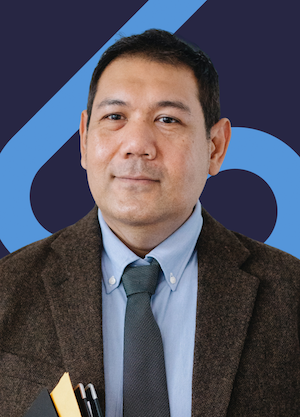Most people are wary when it comes to office politics – but what if your job is to work with politicians?
Working in civil service is unlike the private sector when it comes to achieving goals and objectives. Profit and growth are determining factors in a company guided by owners. The priority in government is to make decisions about public policy where competing interests abound. Controversy lurks around every corner and can have consequences come election time.
Navigating these difficult currents can be frustrating for non-elected leaders who sometimes see politics as a barrier to achieving good public policy decisions, but it comes with the territory in a democracy.
View the introduction to Peter Constantinou’s module on Political Acuity.
Peter Constantinou, a Schulich ExecEd facilitator who specializes in political acuity, has experienced this firsthand as a former civil servant, Chief of Staff for a provincial minister and a lobbyist. He knows the benefit of understanding how elected people think and how citizens can react to public policy initiatives. “There is no rule book,” he explains. “Even if you follow the rules, you can still get into trouble, so how do you figure your way forward when nothing’s written down?”
“Political Acuity is a way of thinking and it’s a way of behaving” he says. “It’s a way of putting information we collect, absorb and observe and putting it together with skills we develop to better guide our choices and our behaviours so we can better accomplish our goals and objectives.”
There are two ways to think of political acuity, says Constantinou. One is as the kind of interpersonal skillset that everyone needs to function in whatever organization they are in, whether it is in the public, private or not-for-profit sector. The other is an appreciation for the role of the elected official and the perspective they bring to decision-making.
What often gets in the way is confusion between partisanship, which many people view as a negative, and politics, which is part and parcel of a democracy. “Politics is, in many ways, simply the act of choosing,” says Constantinou. “People have to make decisions – why spend money on this as opposed to that? Some define it as how we govern ourselves, how power is exercised in our system.
“If we understand our politicians – what their motivations are, what they worry about, what keeps them up at night, all of a sudden, we might bring them better policy advice. I want them to be political, but I don’t want them to be partisan.”
One method of developing political acuity is what Constantinou calls the leadership skill of “reflective practice” – the ability to pause after a meeting or discussion and think about what happened and learn from it.
“Leading is you thinking about something, making a decision or taking a particular action and then analyzing how did it go…evaluating – did it work, did it fall short, was it too much, was it the wrong direction? – and taking that lesson back, thinking about it and adapting for the next time.”
Pressure to keep up with demands of the job is one thing that prevents people from practising reflective leadership. But you can go too far the other way too. Reflective practice should not lead to analysis paralysis, says Constantinou. “You can’t get stuck in overthinking everything, but your capacity to think about what you’re doing proactively and strategically is important.”
The major benefit of developing political acuity is being able to survive and thrive in a chaotic work environment. Constantinou’s sessions deliver a series of tools and techniques to improve your political acuity and understand “optics”, which is a big part of the learning and includes case studies from government. Among the topics covered are:
- Key players and processes in systems of government
- Formal and informal decision-making processes
- The role of influence in getting things done
- Networking and the creation of strategic networks and alliances
- Case studies in applied political acuity: stakeholder relations
- Strategies and techniques for raising political acuity
*
 Peter Constantinou is a facilitator for several programs at Schulich ExecEd, including the Masters Certificate in Municipal Leadership (starting May 4), the Masters Certificate in Public Sector Leadership and custom programs for government leaders. For information and to register visit the program web pages. For information on our custom programs for government leaders or our open programs, you can contact an adviser.
Peter Constantinou is a facilitator for several programs at Schulich ExecEd, including the Masters Certificate in Municipal Leadership (starting May 4), the Masters Certificate in Public Sector Leadership and custom programs for government leaders. For information and to register visit the program web pages. For information on our custom programs for government leaders or our open programs, you can contact an adviser.
Related Articles

Unleashing the Power of Effective Project Management & Leadership: Schulich ExecEd’s Masters Certificate in Project Management
May 29, 2024
Navigating the Leap from Team Member to Team Leader: Essential Skills for New Managers
March 26, 2024










